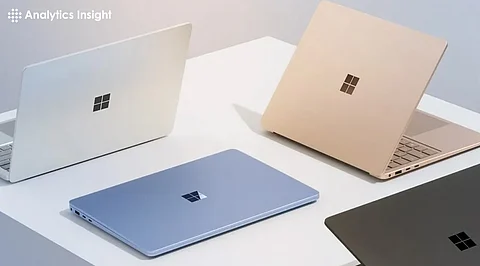

The rapid technological growth is impacting all sectors, including laptops. In recent years, the computing world has shifted from its traditional laptops and introduced ARM-based laptops. ARM chips have been dominating mobile devices like smartphones and tablets for a long time, but now they have been making their mark in the world of computing. The competition is hard, but it brings one question to mind: are the ARM-based laptops worth it?
This rise of ARM-based laptops didn’t result in a single day. This transition took time. The more the ARM architecture advanced, the more these chips started giving competition to traditional Intel or AMD processors.
Intel is the oldest player in the laptop computer chip market, but gradually, ARM chips are bypassing it for their efficiency in terms of power consumption and heat generation. Now that mobile devices are used for gaming, the demand for a good processor is also increasing. Therefore, ARM’s inclined popularity to become the go-to choice for its power efficiency and compact form factor has cleared its way to the laptop market. Currently, Microsoft, Apple, and several other leading brands have been making ARM-powered laptops.
Judging a processor’s worth isn’t easy. Some key points need to be kept in mind. So, below are the benefits of ARM-based laptops:
Battery Life and Efficiency: ARM-powered laptops' first and probably biggest selling point is their exceptional battery life. ARM processors come with a small power footprint. Therefore, battery consumption is low compared to that of traditional laptops. Therefore, users can use these devices longer than usual; more specifically, some of these devices provide more than 20 hours of use time without charging the laptop.
Performance: The next thing users generally count on for a laptop is its performance. While these ARM-based laptops have less power usage, that doesn’t mean they fall short in performance. Instead, these devices deliver high performance while using less power. Therefore, these laptops are, smoothly, the best choice for multitasking, faster downloads, and efficient tasks.
Thermal Efficiency: This is another thing that one should consider in a laptop, and that’s the Thermal Efficiency. Often laptops get too hot when used for a longer time. However, that’s not the case with the ARM processors. These processors generate much less heat compared to other chips. This allows these laptops to have even fanless designs and be compatible to use anywhere.
Compact Design: The final thing that makes a laptop suitable for use is its design. ARM processors are tiny in size. Therefore, the laptops are also thin and light. But this lighter design combines a powerful system, making these laptops easier to carry everywhere.
It’s time to check some of the negative sides of these laptops as well to reach the conclusion of whether one should go for them or not. Here are the potent restrictions of these laptops:
Software Compatibility: Software compatibility is one of the most important parts of any device, and that’s the biggest lack in ARM laptops. These laptops often struggle to run applications that are designed to run on Intel and AMD. Major operating systems like Windows and macOS support ARM-powered devices, but restrictions are still there because loads of important applications don’t run on these laptops.
Limited Availability of ARM-Based Devices: The availability is another challenge that these laptops generally face. Currently, Apple has invested in ARM for its MacBooks, but a lot of manufacturers are still unwilling to shift to these new chipsets, leaving behind traditional ones. Some are entering the market gradually, but choices are still limited for the consumers.
Performance Gaps: Previously, this article mentioned the outstanding processing power of these chips, but there are still gaps to bridge. ARM processors are indeed the best for day-to-day work, but they lack performance when it comes to heavy processing power. It often fails to run high-performance games or software that require more processing power.
This piece has discussed both the positive and negative sides of getting ARM-powered laptops. But the decision is ultimately on the users whether they think these are worth it or not. If someone prioritizes battery life, portability, and a fanless design for carrying the laptop anywhere without trouble and performing light tasks on it, ARM laptops are a great choice for them. But when it comes to those who emphasize the availability of the device and its performance, like video streaming and using high-end applications for hours, they should think twice before going for ARM-powered devices.
Anyway, with time, ARM chips will definitely evolve into better ones covering all the gaps that currently exist, but at this time, one should choose laptops based on what they are going to use them for.
